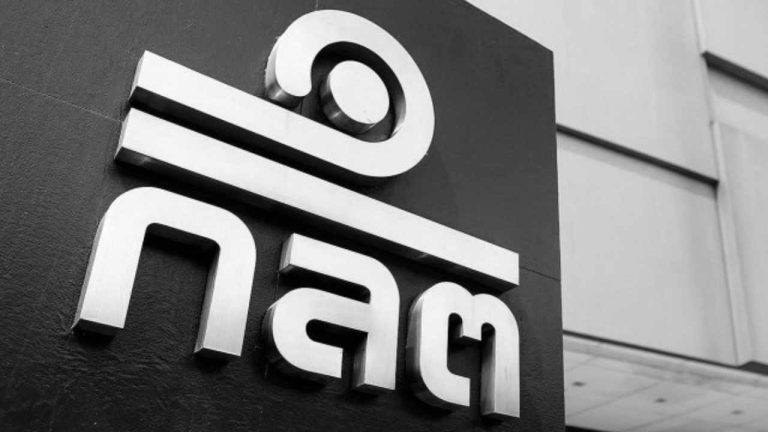 The Thai Securities and Exchange Commission (SEC) has launched a Digital Asset Regulatory Sandbox, allowing crypto services to be tested in a controlled environment. This initiative aims to promote innovation in Thailand’s capital market by accommodating six specific digital asset-related services, including exchanges and custodial wallet providers. Thai SEC Launches Digital Asset Regulatory Sandbox The […]
The Thai Securities and Exchange Commission (SEC) has launched a Digital Asset Regulatory Sandbox, allowing crypto services to be tested in a controlled environment. This initiative aims to promote innovation in Thailand’s capital market by accommodating six specific digital asset-related services, including exchanges and custodial wallet providers. Thai SEC Launches Digital Asset Regulatory Sandbox The […]
The Securities and Exchange Commission (SEC) of Thailand is launching a new crypto asset regulatory sandbox to test its digital asset-related services. In a new announcement, the securities regulator says it’s launching the sandbox – a controlled environment set up by regulators where companies can test their services and products – as a means of […]
The post Thailand Securities Regulator Launches Digital Asset Regulatory Sandbox for Crypto Testing appeared first on The Daily Hodl.
 The U.S. Attorney’s Office has launched a civil forfeiture action to reclaim cryptocurrency seized by the FBI from international fraudsters involved in “pig butchering” schemes. This initiative aims to return the stolen funds to victims and hold criminals accountable. “The rate at which bad actors are using elaborate pig-butchering scams to defraud innocent people is […]
The U.S. Attorney’s Office has launched a civil forfeiture action to reclaim cryptocurrency seized by the FBI from international fraudsters involved in “pig butchering” schemes. This initiative aims to return the stolen funds to victims and hold criminals accountable. “The rate at which bad actors are using elaborate pig-butchering scams to defraud innocent people is […] The Bank of Thailand (BOT) has released a report on its Retail Central Bank Digital Currency (CBDC) pilot project, conducted using Giesecke+Devrient’s (G+D) technology solution. The project tested the digital version of the Baht and its potential for financial innovation, delivering key lessons on the capabilities of a CBDC in supporting multiple online and offline […]
The Bank of Thailand (BOT) has released a report on its Retail Central Bank Digital Currency (CBDC) pilot project, conducted using Giesecke+Devrient’s (G+D) technology solution. The project tested the digital version of the Baht and its potential for financial innovation, delivering key lessons on the capabilities of a CBDC in supporting multiple online and offline […]

Regulators from key crypto markets, including the United Kingdom and Spain, have also taken similar measures against misleading crypto advertisements to minimize losses from crypto investments.
The Securities and Exchange Commission (SEC) of Thailand wants to ensure that crypto investors are not lured into the ecosystem by misleading advertisements.
On April 29, the Thai SEC warned all operating crypto exchanges against glamorizing crypto investments and reminded them to adhere to prescribed advertising standards.
The warning comes from Deputy Secretary-General Anek Yooyuen, who said the commission was concerned about crypto exchanges offering special privileges to onboard users.

Stablecoin purchases in Turkey amount to 4.3% of GDP, the highest among global economies, according to Chainalysis.
The United States may lead the world in stablecoin transaction volumes, but its share of stablecoin purchases relative to its gross domestic product (GDP) has been eclipsed by Turkey.
According to “The 2024 Crypto Spring Report,” released on April 25 by the blockchain intelligence firm Chainalysis, Turkey has the highest share of stablecoin purchases relative to its GDP.
Based on Chainalysis’ data, stablecoin buying in Turkey accounted for 4.3% of its GDP between April 2023 and March 2024, making it the world’s biggest spender of stablecoins relative to its GDP.

Crypto services from Binance and Gulf Energy’s joint venture, Gulf Binance, will initially be available to Thai residents on an invitation-only basis.
Binance will publicly roll out a Thailand-based crypto exchange in early 2024 via a joint venture with local energy giant Gulf Energy Development.
A Nov. 15 Stock Exchange of Thailand filing by Gulf Energy said the venture, called Gulf Binance, will initially be available on an invitation-only basis with a public rollout by early 2024, with the firm receiving Securities and Exchange Commission approval on Nov. 10.
A Binance spokesperson confirmed to Cointelegraph that the platform has initially launched as an invitation-only exchange and would give more details as information becomes available.
On May 26, Gulf Binance received digital asset operator licenses from Thailand’s Ministry of Finance, which enabled it to operate a crypto exchange regulated by the country’s SEC. At the time, Binance had planned to launch its Thai arm by Q4 2023.

On the same day, Binance’s regional head of Asia, Europe and MENA, Richard Teng, said the exchange would harness "Gulf’s established local presence and network,” and Gulf Binance aims to show the potential of blockchain technology to local users.
Gulf Energy is one of Thailand's largest natural gas distribution companies, founded and run by Thai billionaire Sarath Ratanavadi. The company actively invests across different business verticals, including renewable power generation, infrastructure development projects and digital infrastructure businesses, among others.
Related: India, Nigeria, Thailand top Chainalysis’ 2023 Global Crypto Adoption Index
Gulf Energy invested in Binance’s United States-based arm, Binance.US. In April 2022, the firm disclosed that it invested in “Series Seed Preferred Stock issued by BAM Trading Services,” the operator of Binance.US.
Last month, Binance assisted the Royal Thai Police to seize $277 million from scammers. Following the revelation, over 3,200 victims contacted the authorities to file for compensation.
#Binance Aids Royal Thai Police in Crackdown on Criminal Networks | @Binance Blog https://t.co/GzMGjTlzmI
— CZ Binance (@cz_binance) October 3, 2023
At the time, Binance’s head of financial crime compliance, Tigran Gambaryan, highlighted the company’s intent to partner with various authorities worldwide to help with “restoring the trust in the digital-asset ecosystem.”
Magazine: Breaking into Liberland: Dodging guards with inner-tubes, decoys and diplomats

Project mBridge has put together a slick publication with lots of new information to let the world know what the hottest project in CBDC is.
The Bank for International Settlements (BIS) released a colorful and fact-filled Project mBridge update on Oct. 31. The publication combines technical and promotional discussions in a shift of tone as the project prepares to become a minimum viable project for commercial launch next year.
The update gathers a significant amount of information about the central bank digital currency (CBDC) bridge that had been scattered or completely unavailable until now. The governance structure is explained in general terms, and technical details are slipped into the text at a level of readability that makes it accessible to non-specialists.
A next envisaged stage in Project #mBridge is whether the tested platform can become a minimum viable product, with continued work on the technology, legal and governance, and welcoming new participants and use cases. Read the new report: https://t.co/dzQCxz9UYL #BISInnovationHub pic.twitter.com/4ZtHDrERK8
— Bank for International Settlements (@BIS_org) October 31, 2023
The update explains the project’s use of the Dashing consensus algorithm, which was introduced earlier this month and had previously only been announced in Chinese-language media. It describes it as:
“A Byzantine Fault Tolerance (BFT) consensus protocol that uses proofs of partial confirmation of a block validation to reduce the time needed to achieve consensus and to improve the overall protocol performance.”
The use of legal entity identifiers for Anti-Money Laundering and Countering the Financing of Terrorism is also new information.
Related: BIS, EU central banks building data platform to track crypto, DeFi flows
The technical information is sandwiched in text that is, at least by the standards of central banking, blatantly promotional:
“With Project mBridge, the number of steps [in cross-border payments] can be significantly reduced by allowing direct, bilateral connectivity between the payee’s and payer’s local banks supported by interoperability with participants’ domestic payment systems.”
One of the bigger revelations in the update is a list of observer organizations in the project. Their presence was known before but never specified. There are 25 observers, which include central banks and organizations such as the International Monetary Fund and Federal Reserve Bank of New York. Eleven of them are active in the project’s sandbox. Their identities were not revealed.

Project mBridge was initiated in 2021 by the central monetary authorities of China, Hong Kong, Thailand and the United Arab Emirates in partnership with BIS. It announced plans for its commercial launch in September. This publication calls "see[ing] if the platform tested can evolve to become a Minimum Viable Product" the project's next step.
Magazine: China’s blockchain satellite in space, Hong Kong’s McNuggets Metaverse: Asia Express

Singapore’s central bank and financial regulator is seeking closer cross-border collaboration for its asset tokenization project.
The Monetary Authority of Singapore (MAS), the country’s central bank and financial regulator, is planning to start crypto-related cooperation with some European countries and Japan.
The MAS officially announced on Oct. 30 that it is partnering with the Financial Services Agency of Japan (FSA), the Swiss Financial Market Supervisory Authority (FINMA) and the United Kingdom’s Financial Conduct Authority (FCA) to promote joint digital asset pilots. The authority specifically seeks to carry out such pilots in relation to fixed income, foreign exchange and asset management products.
The initiative builds upon Singapore’s ongoing asset tokenization project known as Project Guardian, which was launched in 2022. Under the MAS Project Guardian, Singapore’s central bank collaborated with 15 financial institutions to complete pilots on asset tokenization, which demonstrated a significant potential for transaction efficiency.
“As the pilots grow in scale and sophistication, there is a need for closer cross-border collaboration among policymakers and regulators,” the MAS wrote, adding that the regulator has therefore established a Project Guardian policymaker group comprising the FSA, the FCA and FINMA.
The group aims to initiate policy and accounting discussions and identify potential risks and legal gaps related to digital assets and tokenized solutions. The project also seeks to explore the development of common standards for the design of digital asset networks and find best practices across various jurisdictions. Other work vectors include interoperability, regulatory sandboxes and education related to the digital currency industry.
Related: Singapore awards major payment institution license to Sygnum Bank subsidiary
“MAS’ partnership with the FSA, the FCA and FINMA shows a strong desire among policymakers to deepen our understanding of the opportunities and risks arising from digital asset innovation,” MAS deputy managing director of markets and development, Leong Sing Chiong, said. He added:
“Through this partnership, we hope to promote the development of common standards and regulatory frameworks that can better support cross border interoperability, as well as sustainable growth of the digital asset ecosystem.”
Singapore has been actively collaborating with global financial authorities in the field of digital currency. In September 2023, Singapore MAS completed a joint test of the cross-border trading and settlement of wholesale central bank digital currencies in collaboration with the Bank for International Settlements and the central banks of France and Switzerland.
Magazine: Deposit risk: What do crypto exchanges really do with your money?

Thailand's second-largest lender by assets, Kasikornbank, is moving into crypto by acquiring a majority stake in the local crypto business Satang.
Thailand’s Kasikornbank, one of the largest banks in the country, is moving into the cryptocurrency industry by acquiring a majority stake in the local crypto business Satang.
Kasikornbank, also known as KBank, acquired 97% of shares in the operator of Thailand’s Satang crypto exchange, according to an announcement published on Oct. 30 on the website of the Stock Exchange of Thailand (SET).
According to Kasikornbank, the acquisition is valued at 3.7 billion Thai baht, or around $103 million. The transaction is being made through K-Bank's new subsidiary called Unita Capital, which is focused on investment in the digital asset industry, the statement notes.
Following the acquisition, Satang Corporation is set to change its name to Orbix Trade Company Limited. Kasikornbank’s crypto business will have three divisions, including the custody platform Orbix Custodian, the venture arm Orbix Invest and Orbix Technology, a blockchain technology developer.
Satang Corporation is a major cryptocurrency business in Thailand, operating a crypto exchange and other digital asset services. Satang’s founder Poramin Insom is known for launching the privacy-focused cryptocurrency Firo (FIRO), formerly known as Zcoin.
Insom took to Facebook on Oct. 30 to confirm the acquisition by Kasikornbank. “I’ve been at Satang since 2017 until now, six years have passed,” Insom said, adding:
“Currently, Satang on the trading board has already exited according to the news. And there should be an official announcement soon.”
He also mentioned that Satang’s other companies include the blockchain service platform Satang Technology and space-related Satang Space.
Related: Thai crypto investors turn to tarot cards, divine signals to predict market
“I still continue to do it without being affected. So I reported here. In case Satang’s corporate customers are shocked at what the existing services will be like in the future,” Satang CEO noted.
The announcement comes shortly after KBank launched a $100 million fund targeting Web3, fintech, and artificial intelligence in September 2023. The bank is reportedly Thailand's second-largest lender by assets, following only Bangkok Bank. According to data from SET, Thai NVDR Company Limited is the largest shareholder of KBank. The Stock Exchange of Thailand owns 99.9% of NVDR’s shares.
Magazine: Chinese police vs. Web3, blockchain centralization continues: Asia Express